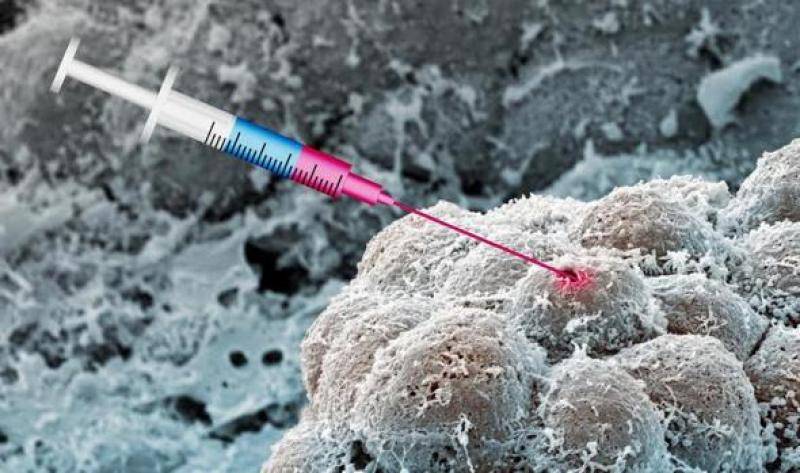Metformin is a drug synthetically derived from the guanidines of the plant Galega officinalis or ruda cabruna which is used for the treatment of diabetes, due to its effect of lowering blood glucose levels. The Galega officinalis plant was already used in the Middle Ages for the treatment of diabetes.
Epidemiological data have shown that diabetic patients had a higher incidence of breast cancer, colorectal cancer, pancreatic cancer and endometrial cancer.
In 2005 researchers found that diabetic patients on metformin treatment had lower incidence of cancer, so it was postulated that metformin might have antitumor properties.
In recent years, clinical trials and observational studies on the benefits of metformin on different types of cancer have proliferated. In 2023, 71 scientific articles have been published on the use of metformin in the treatment of cancer.
Glucose is the main source of energy for tumor cells, moreover, they need large amounts of glucose to cover their rapid growth. Metformin acts by inhibiting the breakdown of glucose in the tumor cell mitochondria and inhibiting new glucose formation in the liver. It is this mechanism that explains the tumor shrinkage observed in patients treated with metformin in tumors that were primarily dependent on mitochondrial energy for growth.
Metformin is used in combination with the ketogenic diet to enhance its effect on tumor reduction.
Studies have been conducted on the combined use of metformin with chemotherapy, showed that it increased the efficacy of chemotherapy.
Metformin inhibits tumor cell migration, invasion and metastasis.
The types of cancer that have demonstrated benefits with the use of metformin are:
Scientific publications on metformin in the treatment of cancer
- Galal MA et al. (2024). Metformin: A Dual-Role Player in Cancer Treatment and Prevention. Int J Mol Sci. 2024 Apr 6;25(7):4083. doi: 10.3390/ijms25074083. PMID: 38612893; PMCID: PMC11012626.
- Huang X, Sun T et al. (2023). Metformin Reprograms Tryptophan Metabolism to Stimulate CD8+ T-cell Function in Colorectal Cancer. Cancer Res. 2023 Jul 14;83(14):2358-2371. doi: 10.1158/0008-5472.CAN-22-3042. PMID: 37195082.
- Hua Y, Zheng Y et al (2023). Metformin and cancer hallmarks: shedding new lights on therapeutic repurposing. J Transl Med. 2023 Jun 21;21(1):403. doi: 10.1186/s12967-023-04263-8. PMID: 37344841; PMCID: PMC10286395.
- Panaampon J, Zhou Y et al (2023) . Metformin as a booster of cancer immunotherapy. Int Immunopharmacol. 2023 Aug;121:110528. doi: 10.1016/j.intimp.2023.110528. Epub 2023 Jun 24. PMID: 37364322.
- Dan Jin, Jiwei Guo et al (2020). Metformin-repressed miR-381-YAP-snail axis activity disrupts NSCLC growth and metastasis. Jin et al. Journal of Experimental & Clinical Cancer Research (2020) 39:6. doi.org/10.1186/s13046-019-1503-6.
- Yuanchao Gong, Caihong Wang et al (2020). Metformin Inhibits Tumor Metastasis through Suppressing Hsp90 Secretion in an AMPK 1-PKC Dependent Manner. Cells 2020, 9(1), 144; doi.org/10.3390/cells9010144.
- Bo Li, Pingting Zhou et al. (2020). Metformin induces cell cycle arrest, apoptosis and autophagy through ROS/JNK signaling pathway in human osteosarcoma. International Journal of Biological Sciences 2020; 16(1): 74-84. doi: 10.7150/ijbs.33787.
- Chenglai Xiaa, Fang Yanga et al. (2020). iTRAQ-based quantitative proteomic analysis of the inhibition of cervical cancer cell invasion and migration by metformin. Biomedicine & Pharmacotherapy. 2020 Mar;123:109762. doi: 10.1016/j.biopha.2019.109762.
- Marta K. Powell, Dana Cempirkova et al. (2020). Metformin Treatment for Diabetes Mellitus Correlates with Progression and Survival in Colorectal Carcinoma. Translational Oncology. 2019 Dec 30;13(2):383-392. doi: 10.1016/j.tranon.2019.10.011.
- Han H, Hou Y, Chen X et al. (2020).Metformin-induced Stromal Depletion to Enhance the Penetration of Gemcitabine-Loaded Magnetic Nanoparticles for Pancreatic Cancer Targeted Therapy. Journal of American Chemical Society. 2020 Feb 18. doi: 10.1021/jacs.0c00650.




